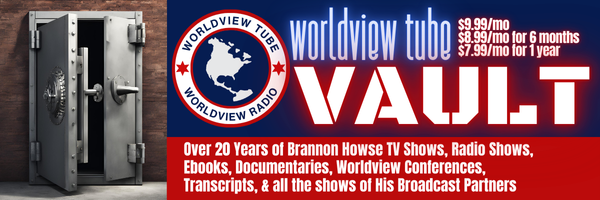Crosstalk: May 23, 2019
Have you ever been surprised by a medical bill you received? Perhaps what you thought was covered by your insurance really was not. Then all of a sudden you receive a surprise medical bill from the provider seeking payment. To deal with this matter, just last week a bill was introduced in Congress which attempts to control the prices doctors can charge. The guest on this edition of Crosstalk indicated that what is proposed by this legislation is ‘socialized medicine on the sly’ and that we can expect doctors to head to the exits.’ Is there another way?
Twila Brase is the president and co-founder of the Citizens Council for Health Freedom. She’s a registered nurse and a certified public health nurse. She has provided testimony before legislative bodies, is the speaker on the Health Freedom Minute and author of ‘Big Brother in the Exam Room.’
Jim indicated that 4 in 10 people have been recipients of surprise medical bills. According to Twila, they are becoming more common as the networks of insurers gets narrower. As an example she cited an instance where you may go to the hospital and they don’t have your anesthesiologist or pathologist who signed a contract with your health plan. Or a surprise bill could come when you have an emergency and you end up in an emergency room that isn’t in your network but the hospital is.
So then Congress comes along saying they have the plan as well as the solution. It just came out last week from Senator Bill Cassidy of Louisiana. This legislation would essentially say that doctors who are outside of the network would not be able to charge the patient more than what the health plan had agreed to pay doctors who have signed on to be part of the network. It would allow some negotiation between doctors and the health plan.
Twila doesn’t think this is the right solution because an independent doctor with their own clinic, making their own decisions about the value of their business, is not able to charge anything to patients other than what the health plan has charged.
She gave the example of a car purchase. Imagine there’s an agreement at the government level that the car dealer can only accept what the bank says they’ll pay for any given car. They can’t charge you more. So let’s say the bank is only going to pay $5,000 for a $15,000 car even though the car dealer has no agreement with the bank in question. The government in this case would insist that the car dealer must take what the bank says they’re willing to pay and the car dealer can’t charge the customer any more.
How would this socialize medicine? Twila described it as an indirect version of socialism, or more specifically, it’s about price controls and limiting what doctors can do. It would involve telling doctors that they can work independently but they only get the money the government decides they can get.
If this legislation (S-1531) passes, would a difference remain between ‘in network’ and ‘out of network’ doctors? Who’s best interest is being served in this case? What is the baseball style arbitration that this legislation calls for? What is the way forward to prevent these surprise bills from coming our way? What did Twila tell President Trump?
Twila answered these questions and more as callers joined in to discuss this critical issue.



































